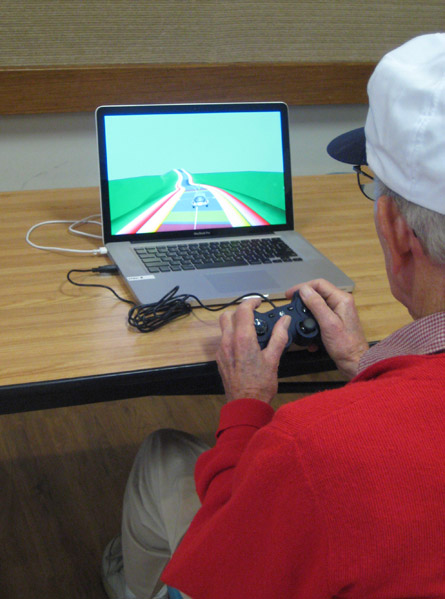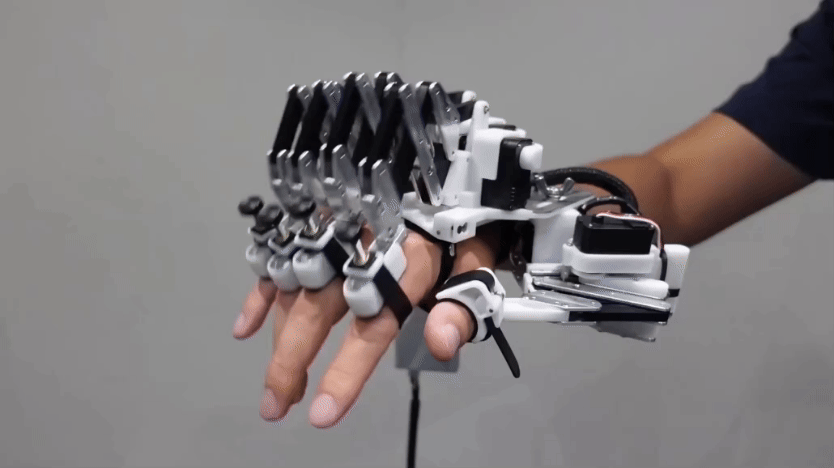Video games: When granddad wins
With some practice, people over 60 bested untrained 20-year-olds
Va-room! Playing a car-racing video game boosts the brainpower of older adults, scientists find. The new results suggest that such games that train the brain might slow the mental decline that often comes with age.

Scientists at the University of California, San Francisco, and their colleagues created a video game called NeuroRacer. Participants drive a car on a narrow, winding road. Along the way, distracting signs pop up every few seconds. Players are told to keep to the middle of the road, focusing on details ahead of their car — and not on the cartoon image of their car.
Making it down the road without skidding off during the turns initially proved challenging for older volunteers, those between the ages of 60 and 85. NeuroRacer required that they take in and respond to several types of information at the same time. This isn’t difficult for today’s teens, but the older volunteers often got confused or distracted. None of these people regularly played video games.
But then the scientists sent the computer game home with each of the older participants for a month. After logging 12 hours of practice at home, each returned to the lab for a new round of tests. And now the older volunteers performed as well — or better — than alert 20-year olds who played the game for the first time. The older players had learned to multi-task in response to game cues. And their new skill didn’t quickly disappear. These older adults played the game just as well, six months later, even though they had not continued to play NeuroRacer at home.
Participants wore a cap over their head embedded with electrodes. Those electrodes measured electrical activity in the brain as each person played the game. After people had been practicing the game at home, these electrodes picked up more electrical activity in the brain’s prefrontal cortex as the older adults played the game. Located behind the forehead, the prefrontal cortex plays a role in making decisions.
The at-home practice didn’t just pay off in better video-game scores for senior citizens. After NeuroRacer training, players over age 60 also showed better short-term memory and attention. These are among the types of brain functions that typically worsen in old age.
Young adults recorded no similar improvements after video-game practice. The scientists suspect they were already so sharp that they might not have that much to gain.
Neuroscientist Adam Gazzaley of UC San Francisco and his team reported their findings in the Sept. 5 issue of the journal Nature.
Power Words
electrode (in brain science) Sensors that can pick up electrical activity.
multitask To perform more than one task at a time. Computers often do this. People can too, such as when they listen during a meeting and take notes at the same time.
neuroscience Science that deals with the structure or function of the brain and other parts of the nervous system.
prefrontal cortex A region containing some of the brain’s gray matter. Located behind the forehead, it plays a role in making decisions and other complex mental activities, in emotions and in behaviors.







